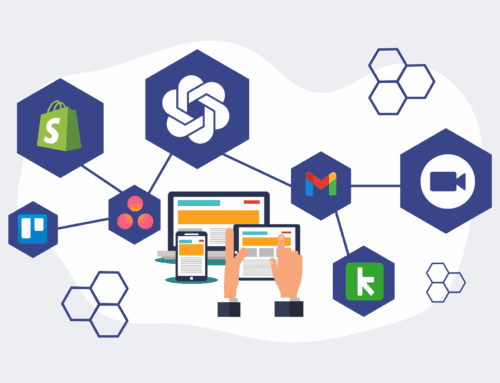Mastering Candidate Sourcing: How AI Transforms the Discovery Process
The quest for top talent has always been a challenging endeavor, demanding precision, foresight, and an intricate understanding of the market. Historically, candidate sourcing has been a labor-intensive process, often relying on keyword searches, manual database sifting, and networking that, while valuable, struggled to scale with modern demands. Today, the landscape of talent acquisition is undergoing a profound metamorphosis, driven by the strategic integration of Artificial Intelligence. AI is not merely a tool; it’s a paradigm shift, fundamentally reshaping how organizations identify, engage, and ultimately secure the candidates who will drive future success.
Beyond Keywords: The Evolution of Intelligent Sourcing
For decades, sourcing was largely about finding candidates who explicitly matched job descriptions based on keywords. While effective to a degree, this approach often overlooked highly qualified individuals whose résumés didn’t perfectly align with rigid search terms, or, more critically, those who weren’t actively looking. AI transcends these limitations by moving beyond surface-level keyword matching. Modern AI algorithms can analyze vast datasets—including professional profiles, public repositories, and even academic papers—to identify nuanced connections, predict potential career trajectories, and uncover candidates whose skills and experiences might be implicitly relevant, even if not explicitly stated.
This capability allows recruiters to shift from a reactive search model to a proactive discovery process. AI-powered platforms can identify patterns in successful hires within an organization, then extrapolate these patterns to find external candidates who share similar attributes, work histories, and even cultural fit indicators. The result is a much richer, more diverse pipeline of talent that might otherwise remain hidden.
Predictive Analytics: Anticipating Talent Needs and Fit
One of the most transformative aspects of AI in sourcing is its predictive power. Instead of merely reacting to open requisitions, AI enables organizations to anticipate future talent needs based on business growth forecasts, industry trends, and even internal mobility patterns. This foresight empowers HR and recruiting leaders to build talent pools strategically, well in advance of a critical hiring need.
Furthermore, AI algorithms can predict candidate success and retention rates by analyzing historical data on employee performance, tenure, and engagement. By identifying common denominators among top performers, AI can help prioritize candidates who are not only qualified but also likely to thrive and remain with the company long-term. This isn’t about eliminating human judgment; it’s about augmenting it with data-driven insights that reduce bias and enhance the quality of hires. We’ve seen firsthand how predictive analytics, when integrated thoughtfully, can dramatically improve the efficiency and efficacy of the entire talent acquisition lifecycle, turning a speculative process into a strategic imperative.
Unlocking the Passive Candidate Market with AI
The most desirable candidates are often those who aren’t actively seeking new opportunities. These “passive candidates” represent a significant challenge for traditional sourcing methods. They aren’t updating their résumés or browsing job boards. This is where AI truly shines. Advanced AI systems can scour professional networks, social media, and other digital footprints to identify individuals who possess highly sought-after skills, even if they aren’t signaling a job search.
By analyzing their contributions, publications, endorsements, and network activity, AI can infer expertise and potential interest. This allows recruiters to engage with passive talent in a personalized, relevant manner, offering opportunities that align with their career aspirations rather than sending generic outreach. This approach transforms the engagement model from “are you looking?” to “we see your exceptional work in X, and we believe you might be interested in Y,” fostering a more genuine and impactful initial interaction.
Operational Efficiency: Reclaiming Time for Strategic Engagement
Beyond discovery, AI brings unparalleled operational efficiency to the sourcing process. The manual tasks traditionally associated with sourcing—like sifting through thousands of profiles, initial screening, and scheduling—are ripe for automation. AI-powered tools can automate résumé parsing, initial candidate ranking based on predefined criteria, and even preliminary conversational AI for answering frequently asked questions. This automation liberates recruiters from mundane, repetitive tasks, allowing them to focus their expertise on high-value activities: building relationships, conducting in-depth interviews, and crafting compelling candidate experiences.
At 4Spot Consulting, we specialize in implementing these very automations, often through our OpsMesh™ framework, which integrates AI seamlessly into existing HR and recruiting systems. The objective is clear: to save organizations 25% of their day by eliminating bottlenecks and reducing low-value work. This isn’t just about speed; it’s about enabling recruiting teams to be more strategic, more human, and ultimately, more effective in a competitive talent market.
The Future is Collaborative: AI and Human Expertise
The narrative around AI in recruiting sometimes poses it as a replacement for human recruiters. This couldn’t be further from the truth. The true power of AI in candidate sourcing lies in its ability to augment human capabilities, not supplant them. AI handles the heavy lifting of data analysis, pattern recognition, and initial identification, providing recruiters with highly curated lists of promising candidates. Human recruiters then apply their nuanced understanding of organizational culture, interpersonal skills, and the intangibles that AI cannot yet fully grasp.
This collaboration—where AI provides the intelligence and humans provide the insight and empathy—is the cornerstone of future-proof talent acquisition. It allows organizations to move faster, make smarter decisions, and build stronger, more diverse teams. Mastering candidate sourcing in the age of AI isn’t about becoming an AI expert; it’s about becoming an expert at leveraging AI to achieve strategic talent outcomes. It’s about building a scalable, resilient talent engine that consistently delivers the right people at the right time.
If you would like to read more, we recommend this article: The Automated Recruiter: Unleashing AI for Strategic Talent Acquisition






